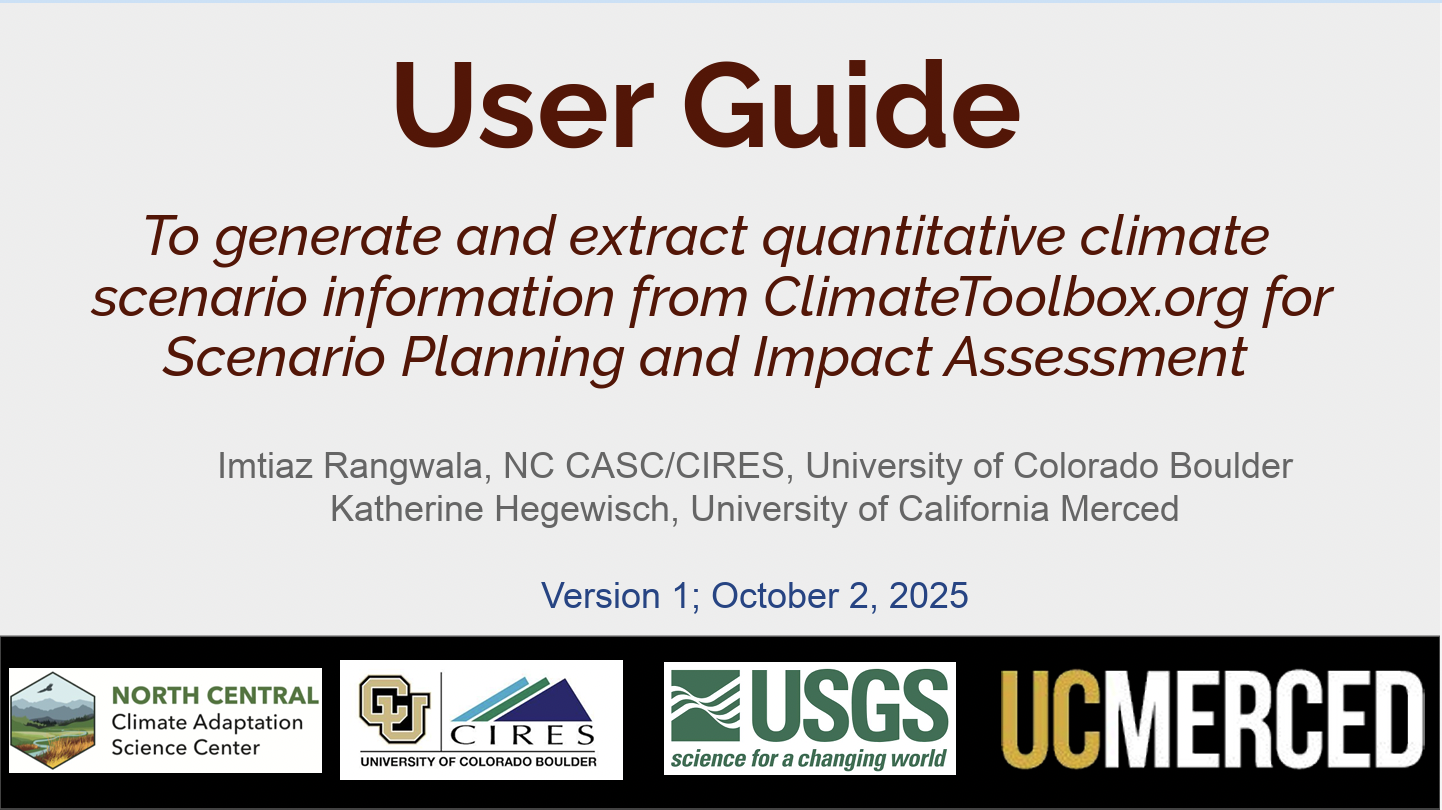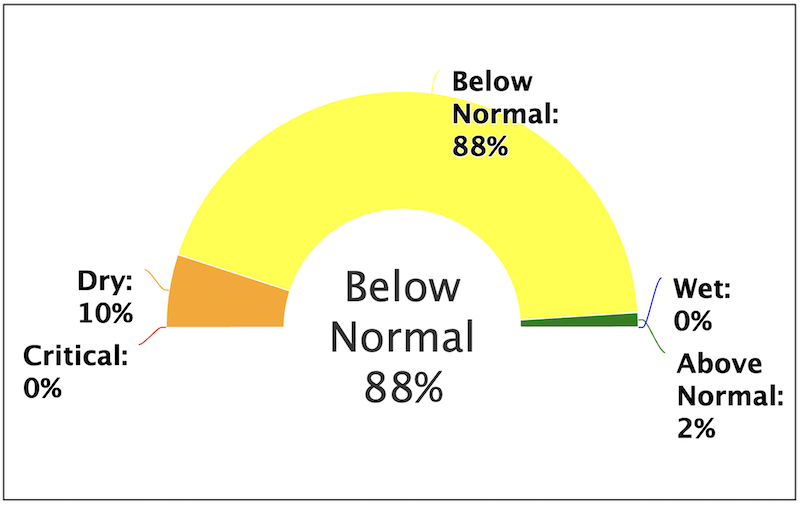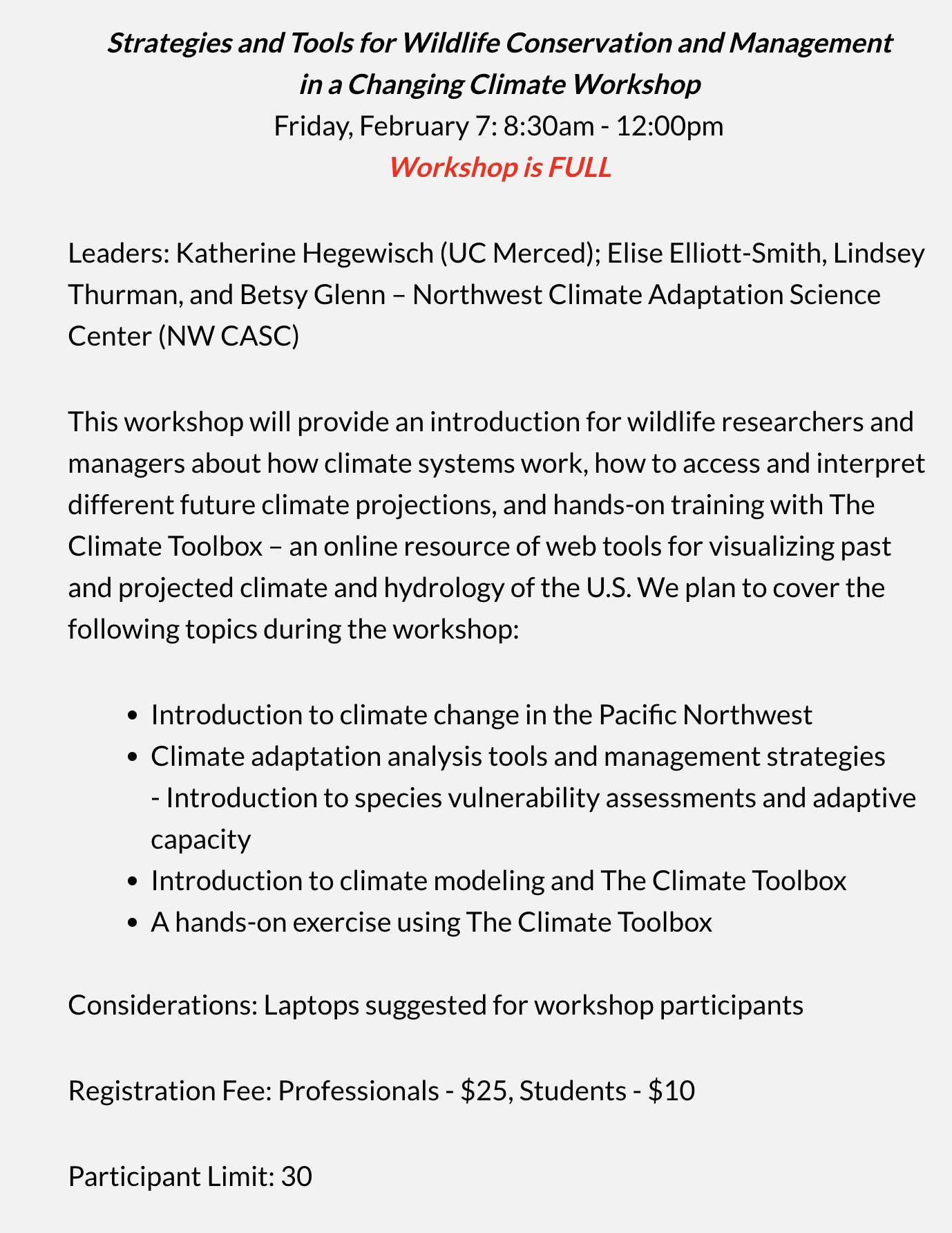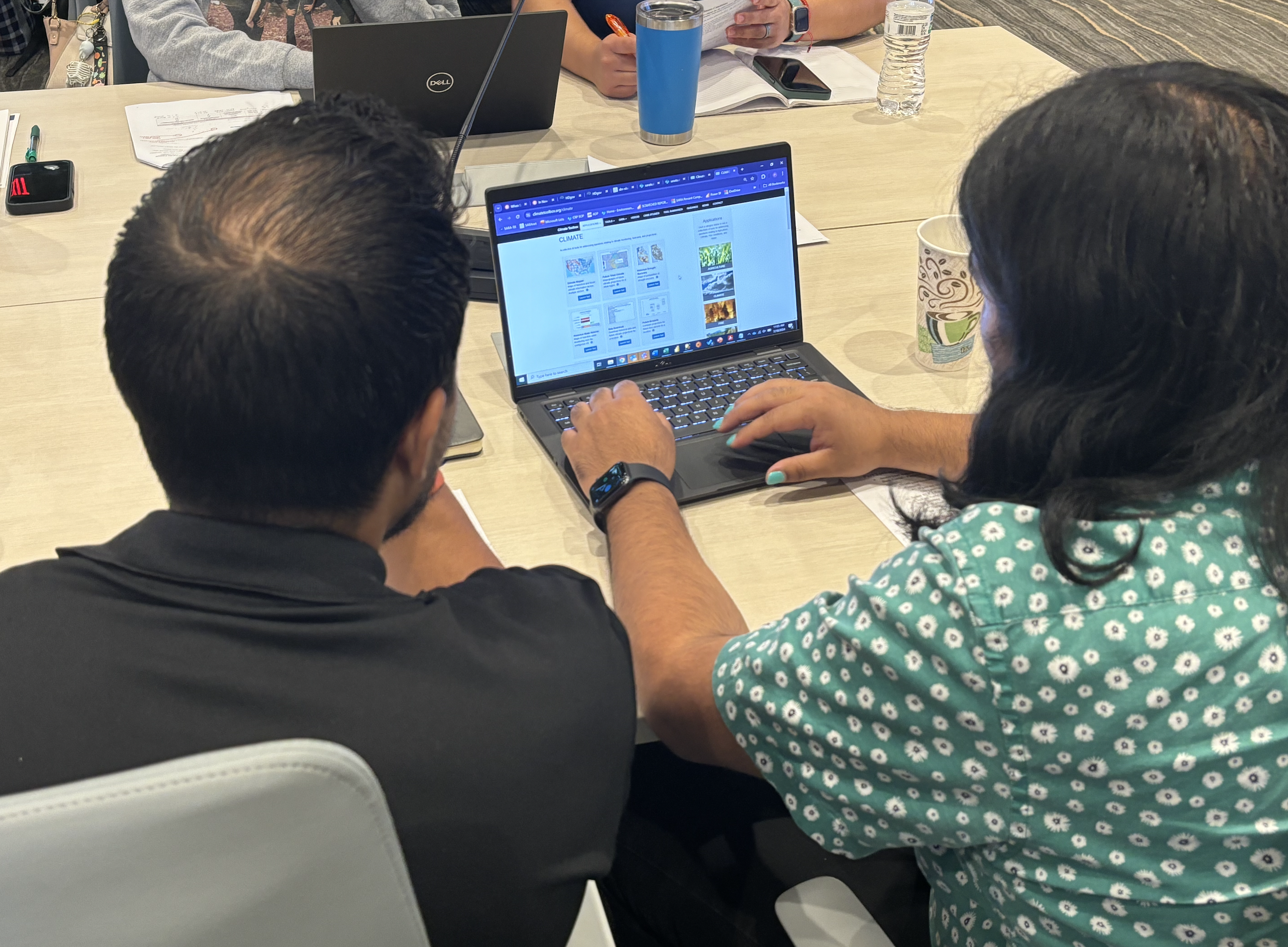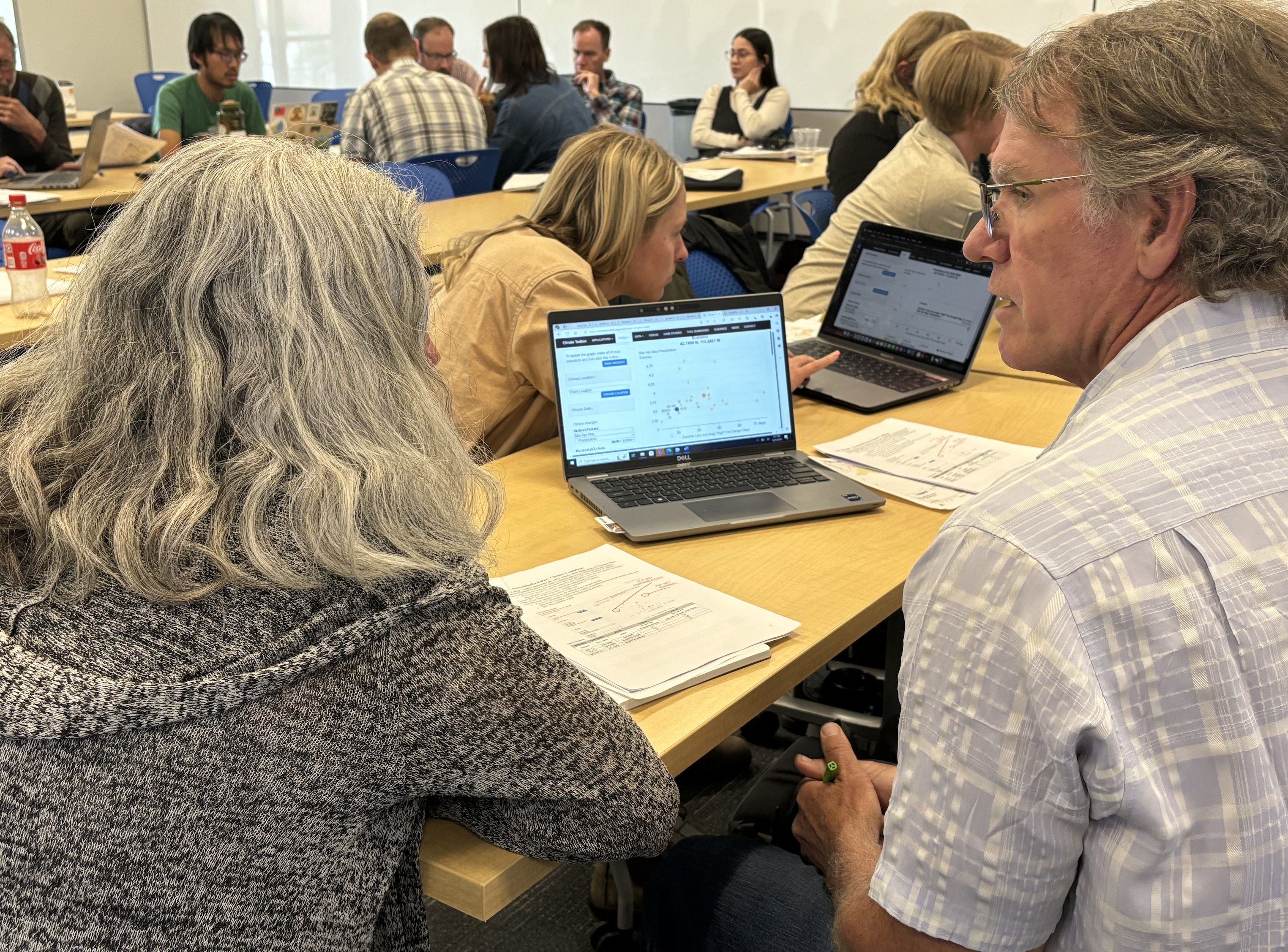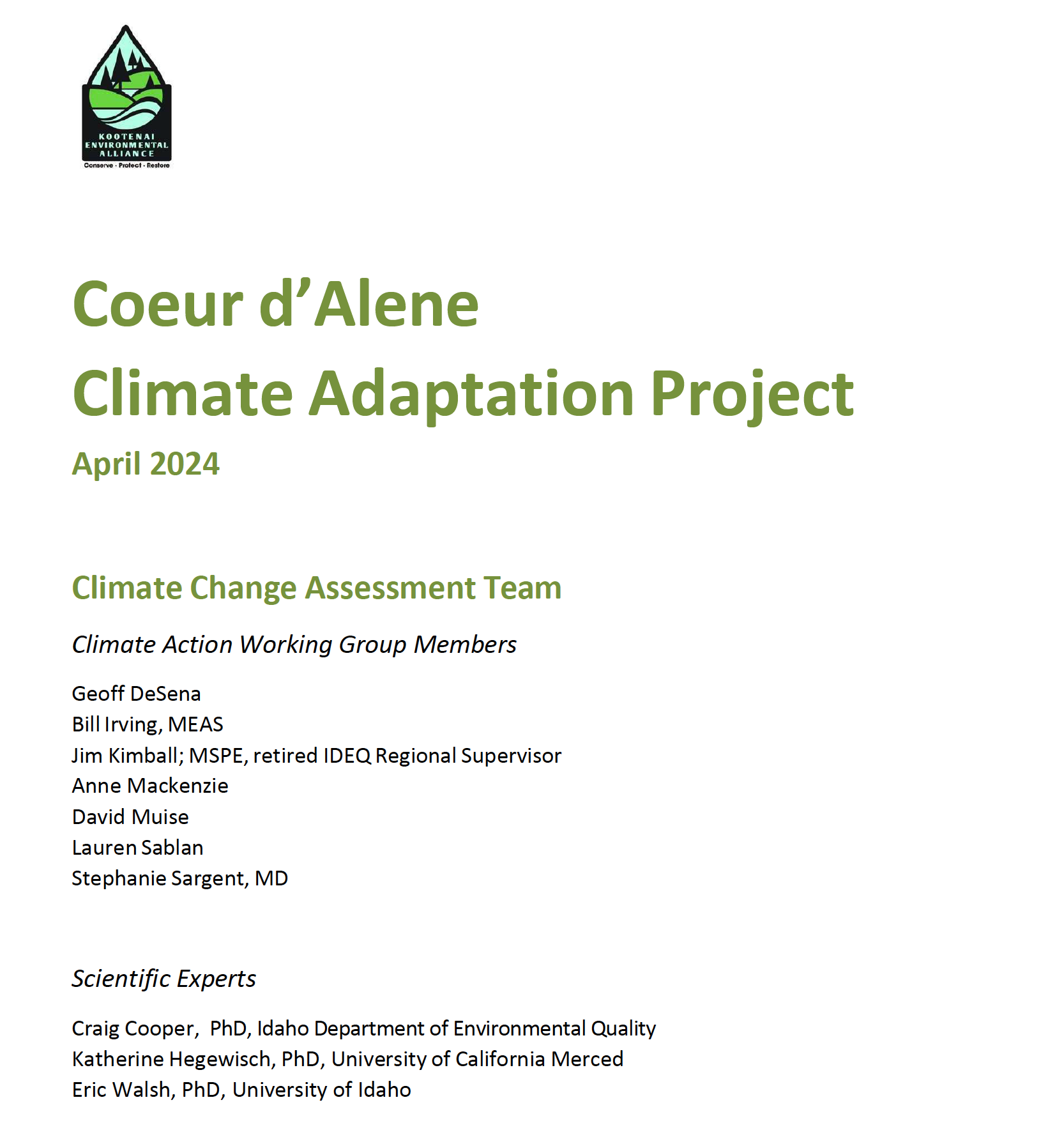Training for Sagebrush Conservation Practitioners
This workshop featured the Climate Toolbox amongst other tools.
The FWS Science Applications Program is working in partnership with multiple USGS Climate Adaptation Science Centers (CASCs), including the South Central CASC, Northwest CASC, North Central CASC, and Southwest CASC, and Boise State University, to develop a training series for sagebrush conservation practitioners.
These trainings began February 2024 with a self-paced introductory course, a series of virtual classrooms, and an in-person workshop in Boise, ID May 21-22 2024. This training series was open to the U.S. FWS Sagebrush Ecosystem Team, as well as others who work in sagebrush ecosystems.
The Climate Toolbox was featured in the 90-minute online webinar, Introduction to Climate Tools, on April 30, 2024 and in the interactive hands-on exercises featuring tools in the Toolbox at the in-person workshop in Boise, ID on May 21-22, 2024.
REGISTRATION AND INFORMATION
